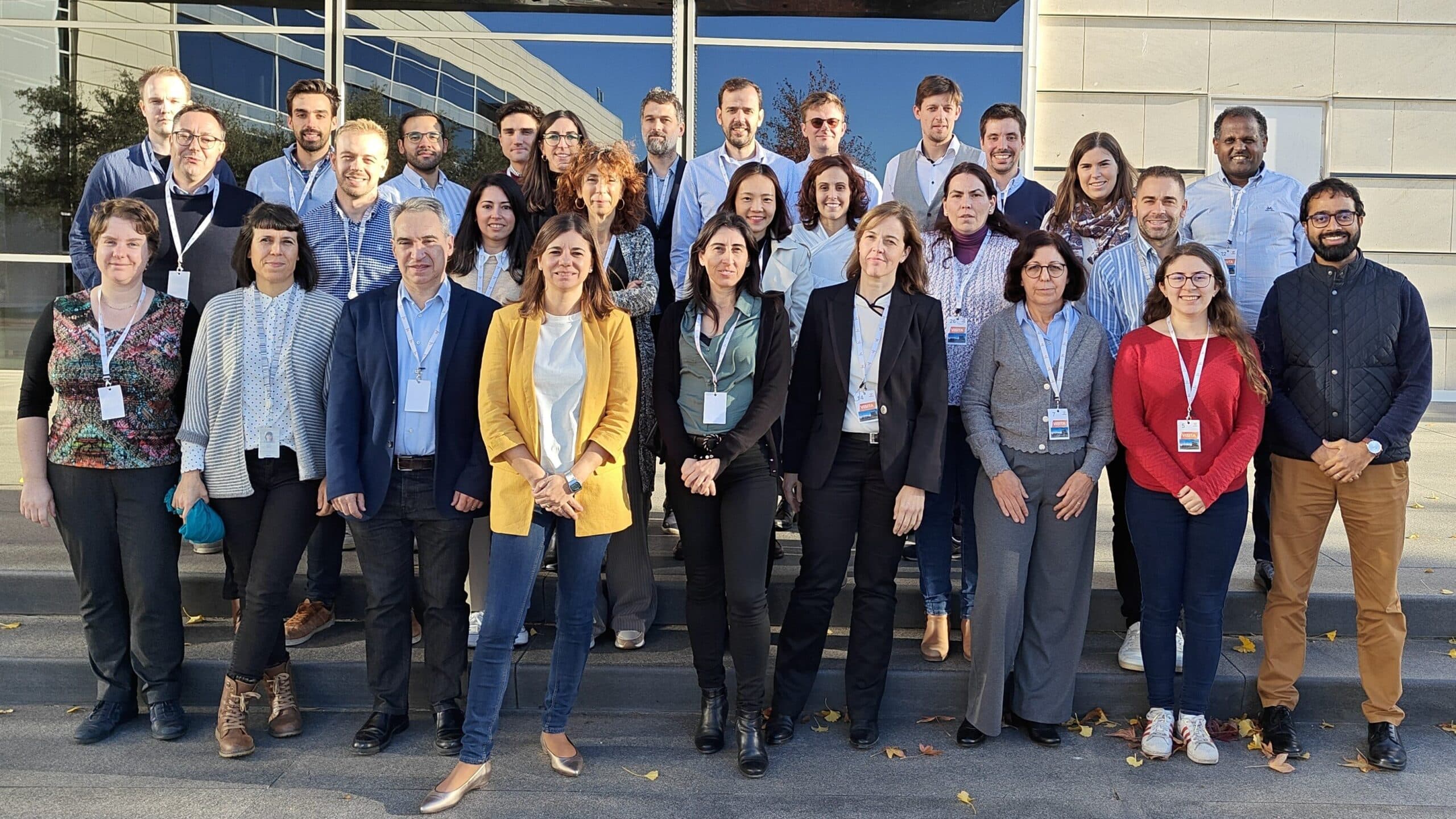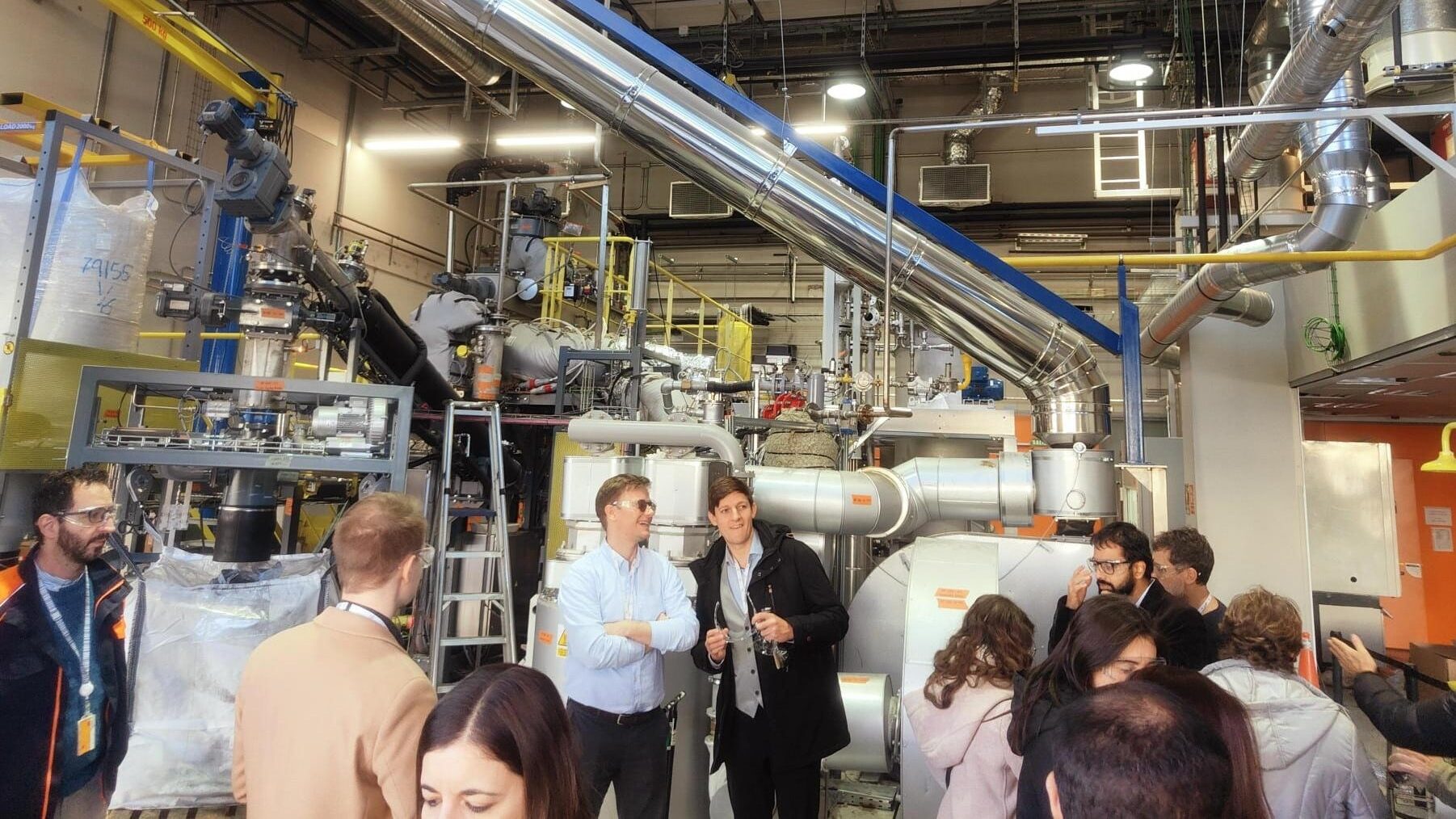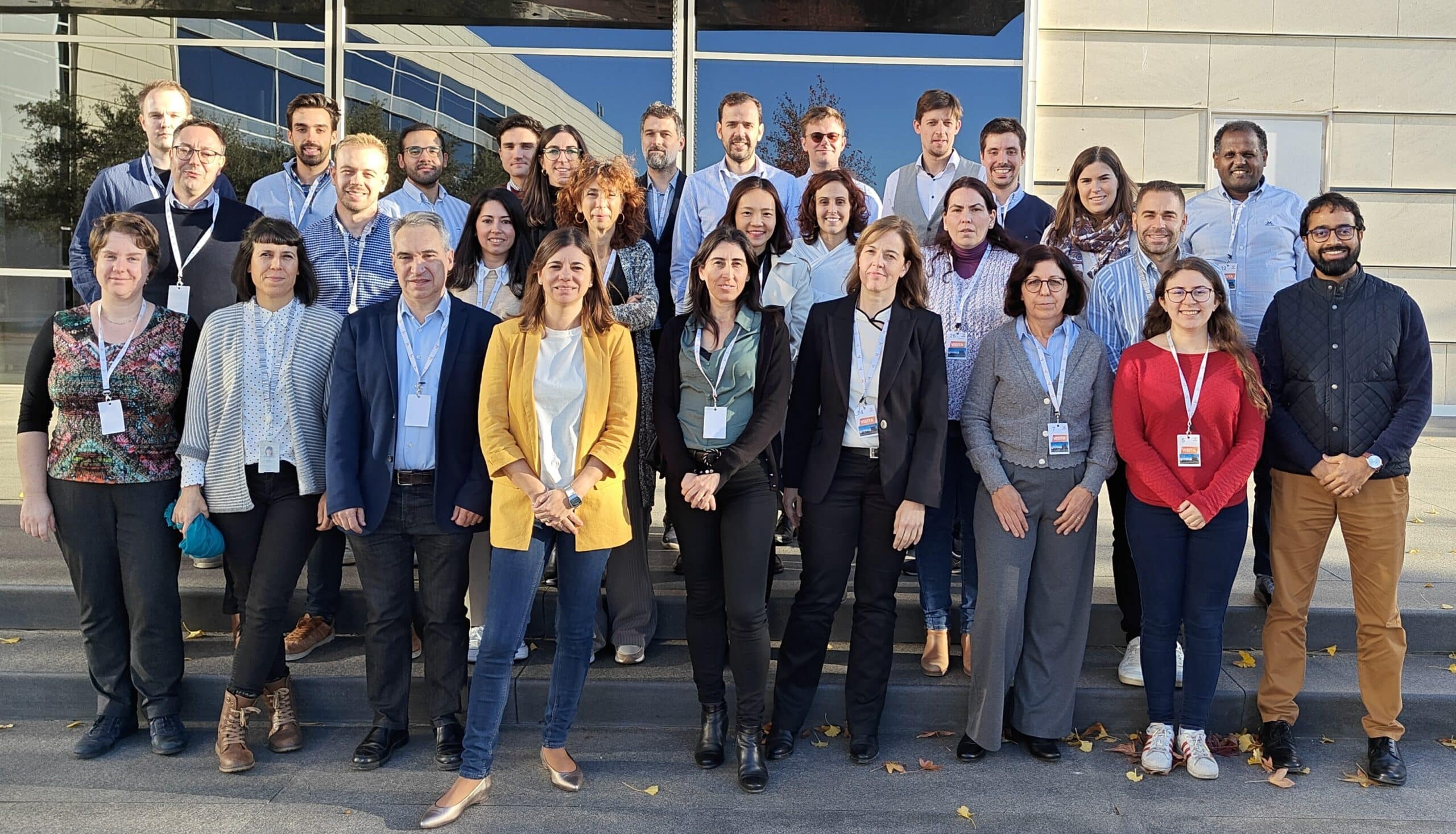During the fourth General Assembly of the Plastics2Olefins project in Madrid, Spain, the partners discussed the progress of the project and assessed results achieved during the last 18 months.
Plastics2Olefins is a project with a clear vision of circular economy and advancement of recycling technology through optimisation of the upstream processes waste (heterogeneous plastic waste).
The project will develop a novel plastics recycling process based on high temperature pyrolysis. This process reduces the lifecycle GHG emissions by more than 70% compared to existing plastics recycling processes for unsorted plastic waste, and by more than 80% compared to current end-of-life options for these wastes, i.e., incineration.
Pilot visit
As a part of the project milestone and continuous assessment of the project status, Repsol hosted the fourth general assembly of the Plastics2Olefins project, which was held on November 21-22, 2023, at the Repsol facility in Madrid, Spain. All partners gathered to discuss the results achieved in the last 18 months, and each partner shared the status of all activities and visited the installation and engineering work of the pilot plant at Repsol Technology Lab.

The pyrolysis pilot plant started to run in 2023 with the goal of demonstrating the Plastics2Olefins technology, testing different qualities of plastic wastes and optimizing the operating conditions to maximize the production of circular olefins. The pilot aims to be an industrial application of the project on a medium scale. It uses renewable energy and won’t need permanent human supervision. Furthermore, it can be operated economically and already supports the goal achievement of the European Green Deal.

Inspired partners
Currently, the project progressed significantly on the technical installation of pilot, carried out major engineering works and some preliminary tests have been conducted. Partners presented and discussed the status of the project in major activities of all work packages, technical discussions and visited the pilot plant. The pilot is set up completely and several test runs were already performed. More than 24 hours of continuous operation were achieved. During the test runs, several issues were located and resolved.
«In general, from the visit, all partners were inspired to contribute for the next steps of the project and put a concrete plan to execute the upcoming project phases,» says Dr. Alemu Belay, Section Head Energy Systems at Smart Innovation Norway, who attended and presented at the assembly.
During 2024, the validation of the technology will be done carrying out long duration trials for the demonstration of the reliability of the integration of the different stages of the technology.
The pilot will be continuously improved according to the results of the Plastics2Olefins project. The consortium is aiming to achieve a fully automated and uninterrupted operation. After that it will start the scaling up of the technology with the engineering activities and phases of the Plastics2Olefins demo plant that will have a capacity of 8000 t/y of plastic wastes.

